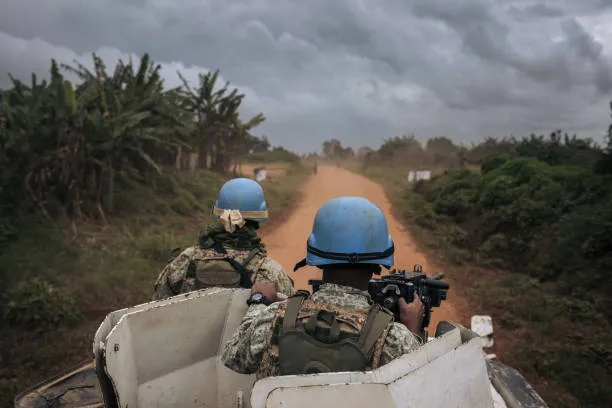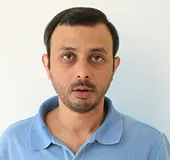-
CENTRES
Progammes & Centres
Location
The recent death of two BSF personnel indicates that the UN officials should double down on preventing public disaffection and alienation from torpedoing the goals of MONUSCO.

India’s United Nations (UN) peacekeeping contingent suffered a shock in the Democratic Republic of Congo (DRC) with the deaths of two Border Security Force (BSF) personnel at the hands of violent local protesters. The Indian peacekeeping contingent is part of the United Nations Organisation Stabilization Mission in the Democratic Republic of Congo (MONUSCO). The loss of two soldiers of the BSF is a psychological setback for the Indian presence under the UN in the DRC. They were part of a 139-strong BSF force, which was India’s contribution to the “formed police” contingent or units, which is distinct from the regular police units and also part of the MONUSCO mission. The BSF force consisted of two platoons with a strength of 70-74 personnel each and deployed earlier in May this year. India is the second largest troop contributor to the MONUSCO mission consisting of 1,888 military personnel after Pakistan. MONUSCO came into effect following the passage of United Nations Security Council (UNSC) Resolution 1925 on 28 May 2010. MONUSCO which effectively took over from its predecessor, MONUC, is one of the largest United Nations Peacekeeping Missions (UNPKMs) in the world.
India is the second largest troop contributor to the MONUSCO mission consisting of 1,888 military personnel after Pakistan. MONUSCO came into effect following the passage of United Nations Security Council (UNSC) Resolution 1925 on 28 May 2010.
Although the tragic loss of military and police personnel is not unique to UNPKMs and casualties are an occupational hazard in any conflict zone, there are some consequences and takeaways for India as well as the UN’s larger peacekeeping missions across the world. Firstly, Though the MONUSCO mission sanctioned and passed under UNSC Resolution 1925, has the legitimacy of the UN and was unanimously adopted by the UNSC, it is insufficient largely because the target population who are supposed to be beneficiaries do not always accept the legitimacy of the UNPKM’s mandate. Secondly, the rampant resentment and anger within the native population can be the product of complex factors. These could range from poor and ineffective distribution of aid to inadequate enforcement of the UNPKM’s mandate such as protecting the subject or local population from violence by armed groups and reprisals against sections of the population for aiding the UN’s stability operations.
More specifically, the MONUSCO mission goals have been plagued by insufficient protection for the local civilian population in the Northeastern part of the country. The failure of the MONUSCO mission to safeguard the local civilian population from armed militias is ultimately a product of the fine line between peacekeeping, peace enforcement, and peacebuilding. These blurred differences make UNPKMs very challenging and demanding. How far are military and police personnel expected to carry out enforcement against armed militias engaging in violence against the local civilian population? Although UNSC Resolution 1925 does mandate that MONUSCO keep most of its “concentrated in the east of the country
An additional critical issue that will necessitate review for the MONUSCO’s forces is the nature of the training imparted to local police and military forces and MONUSCO will have to address the capacity-linked needs of the DRC’s forces.
Nevertheless, as this latest violent incident that claimed two BSF soldiers visibly demonstrates, Indian forces will need to revisit along with the forces of other nationalities, both military and police, deployed under the MONUSCO on strengthening and refining their own safety, base security, and enforcement capacities. An additional critical issue that will necessitate review for the MONUSCO’s forces is the nature of the training imparted to local police and military forces and MONUSCO will have to address the capacity-linked needs of the DRC’s forces. Addressing the inadequacies of existing peace enforcement practices and capacities related to operations, leadership, training, manpower and equipment will go a long way in rendering more effective MONUSCO’s mission in the DRC.
More than a decade has elapsed since the UNSC Resolution 1925 was passed establishing MONUSCO’s mission. While the performance of the MONUSCO’s mission has been critical in preserving stability in the DRC, the mission’s aim of passing on the responsibility of effective peace enforcement is still a work in progress. The legitimacy of MONUSCO’s mission will come under assault and will become unsustainable if it cannot arrest the violence, especially in the eastern region of the DRC. Regardless of the noble effort to do “good” for the people of the Congo via the institutional legitimacy proffered by the UNSC, UN officials and personnel overseeing the MONUSCO’s mission will need to double down on preventing public disaffection and alienation from torpedoing the mission’s goals. The MONUSCO’s mission will need to intensify efforts to train and equip local forces and supplement this effort with improved intelligence collection and dissemination which will allow the mission to come up with more effective responses as well as anticipate and prevent an upsurge in violence in the DRC. Finally, in light of the latest episode of violence more effort needs to be made to establish state authority over the DRC restive regions. MONUSCO is undoubtedly geared to help the DRC transition from its control where state authority and writ enjoys legitimacy and enforcement capacity. As a major troop and military contributor to UNPKMs and especially to the MONUSCO mission in the DRC, New Delhi too must work with greater vigour in enabling this outcome. Otherwise, MONUSCO’s mission goals will remain unmet and condemned to a protracted UN-led administrative and military presence in the DRC.
The views expressed above belong to the author(s). ORF research and analyses now available on Telegram! Click here to access our curated content — blogs, longforms and interviews.

Kartik Bommakanti is a Senior Fellow with the Strategic Studies Programme. Kartik specialises in space military issues and his research is primarily centred on the ...
Read More +